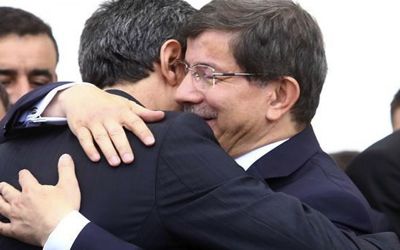
According to the Turkish daily Hürriyet, the 49 Turkish hostages of the Islamic State (including the consul general of Mosul and soldiers belonging to the Special Forces) - who have been just released after 101 days of captivity - were supposedly exchanged against members of the Islamic State, who were being held by another group of jihadists in Syria.
This version contradicts that of the Turkish Communist Party, which claims there had been no Turkish hostages for a long time, and that the entire affair has been staged by the Erdoğan administration to justify its political position.
Moreover, it is discordant with the fact that Turkey and Qatar have offered to mediate between the Lebanese government and the Islamic State the liberation of the Lebanese soldiers and policemen taken hostage in Arsal. During a press conference, Lebanese Prime Minister Tammam Salam publicly thanked the two countries, which he perceives as being “close” to the Islamic State.
During the capture of Mosul (Iraq), the Islamic State had taken prisoner the personnel of the Turkish consulate and their families, as well as the soldiers in charge of their protection. Subsequently, the Turkish government evoked the plight of these hostages to justify its non-intervention in the conflict. This affair is reminiscent of the arrest, on 4 July 2003, of 11 members of the Turkish Special Forces by the US army in Sulaymaniyah (Iraq). There followed a wait-and-see attitude by the Turkish government on Iraq.
From these elements, it can be logically concluded that the Islamic State had taken these hostages to enable Turkey to justify its non-intervention. That the hostages were then promptly returned to Turkey, which kept quiet about it. Finally, that Turkey maintains the good relations it had with the Islamic State before the latter’s invasion of Iraq.
















Stay In Touch
Follow us on social networks
Subscribe to weekly newsletter